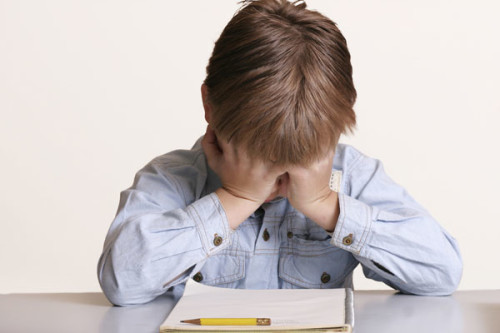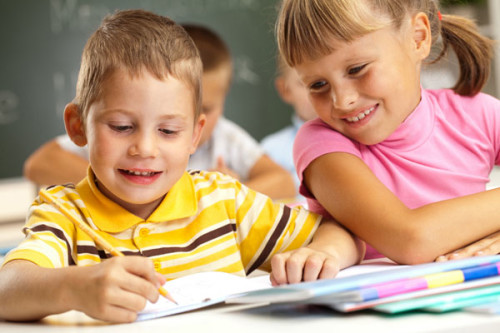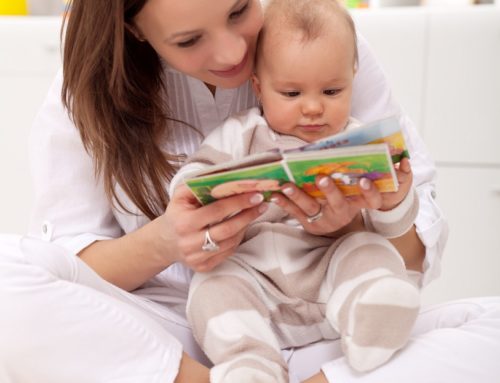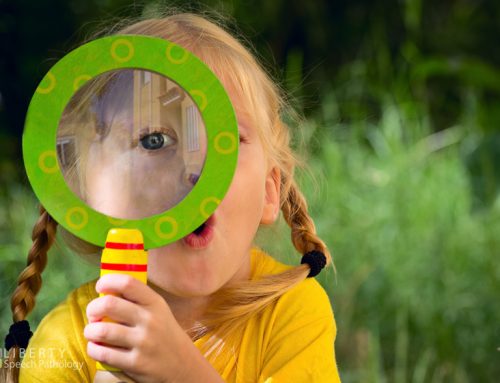My son starts school next week. My first born child is about to become a school boy. I managed to forego the tissues at school transition last year, but it lead me to think about the big changes he is going to face this year.

As I’ve been beginning this school journey, I’ve chatted with lots of other parents making the same transition. Parents often wonder whether their child is ready to enter into the big new world of schooling.
Different children have different strengths and learn in different ways. There is a quote going around on social media that says “Everyone is a genius. But if you judge a fish by its ability to climb a tree, it will live its whole life believing that it is stupid.” Sure, but that doesn’t help the child who is awesome at sport or brilliant in art, thrive in the reading, writing and arithmetic side of school. A child who struggles with these areas will be likely to struggle with schooling for much of their school life.
Kids who are already behind their peers in certain areas when they start school are in danger of falling further and further behind. The gap continues to widen until school becomes a drudgery, school work the bain of the child’s life.
Kids who get the help they need early on have a much better chance to catch up and stay on top of their learning. While I am all for encouraging kids in their special talents, I also want to help kids to thrive in the other areas and be able to enjoy learning.
So, what should kids know before they start school? Here are fifteen language-based skills that will help children start school well:
 Be able to understand and answer different kinds of QUESTIONS.
Be able to understand and answer different kinds of QUESTIONS.- Who, what, where, why, when?
- What is this called?
- A wolf is an animal. What is another kind of animal?
- What do you think Little Red Riding Hood will do next?
- How do you know that Little Red Riding Hood’s granny is really the wolf?
Tip: Use lots of stories to help your child develop his ability to answer questions.
- Follow INSTRUCTIONS
eg “Put your hat in your bag and then get out your Art book.”
Tip: Practice following instructions with games like “Simon Says”. Instead of “Simon says touch your nose”, try 2 step instructions such as “Simon Says touch your nose and then jump up and down.”
- Have an understanding of a range of CONCEPTS
- Location concepts (eg above, below, under, behind, in front of, between).
- Time concepts (eg before, after, then, yesterday, tomorrow, morning, afternoon). A 5 year old should be able to talk about past and future events.
- Number concepts (eg lots, few, one, two, ten, heaps, not many).
- Describing concepts (eg big, little, shiny, sharp, pretty, wet, cold, hot, stinky).
- Feeling concepts (eg happy, sad, disappointed, upset, mad, lonely).Tip: There are a heap of apps that target concepts, as well as lots of puzzles and books to teach these.
Tip: Try having a treasure hunt around the house for your child to find as many shiny/crunchy/pretty/scratchy (etc) things as she can. Cutting pictures out of catalogues for the treasure hunt as well!
- Be able to explain the FUNCTION of objects
eg “What do you do with a camera?”Tip: Pretend you have forgotten what something is for. “Oh, I can’t remember what this camera is for. Do I sweep the floor with my camera?” Have your child ‘teach’ you what different house objects are for.
Tip: If he can’t do this yet, play a game with toys where a toy has forgotten what things are used for. Model the words: “Oh, teddy, you’re mixed up! We use a camera to take photos.” This will help teach your child how to explain how things are used.
- Can COMPARE AND CONTRAST
eg how are an apple and orange the same? How are they different?
Tip: Pull out some objects from around your house. Help your pre-schooler think of a few ways that they are similar and a few ways they are different. You might need to give a bit of help at first.
- Has a VOCABULARY of over 2000 words
Tip: Start a words book. Make a point of teaching your child new words from books and stories. When you teach a new word, add it to the book. Use it as much as you can. Re-visit the word every day for a week and see if your child can still remember what it means. Eg “Creep, creep, creep. I’m creeping down the hallway, quiet as a mouse. Can you creep? Show me how you creep.”
- Uses mostly adult sounding GRAMMAR.
Note, things like irregular plurals (mice, wolves, fish) or irregular verbs (came, ate, gave) are still developing.
Tip: Model correct grammar back as many times as you can, without actually correcting your child each time. Eg, if your child says “Daddy gived me a biscuit”, you say “Daddy gave you a biscuit! Wow, he gave you a chocolate biscuit. What a yummy biscuit he gave you.”
Tip: Every now and then, teach grammar directly: “If someone gives you something, we use the word ‘gave’. Daddy gave me a biscuit.”
- Able to SEQUENCE pictures in the correct order to make sense.
Tip: Check your local toy library for great sequencing puzzles or cards.
Tip: Read a simple story with your child. When you have finished, ask questions about “What happened first? What did she do last? What did he do after…?”
- Able to tell a basic STORY that has a main character and simple storyline.
Tip: Staple some pieces of blank paper together to make a mini blank book. Have your child draw some pictures and then tell you the story at the end. (Note: I’m telling you now, you will want to videotape it! You’re welcome.)

- Have basic REASONING skills.
Tip: Try doing some silly things, then asking your child “why should” or “why shouldn’t” questions. Eg “Why shouldn’t I put my lipstick on my nose?” “Why shouldn’t I put the ice cream in the pantry? Where should I put it?” etc.
- Be able to SOLVE SIMPLE PROBLEMS.
Tip: I am a fan of Mickey Mouse Clubhouse and Jake and the Neverland Pirates for problem solving skills. We buy the DVDs of these. There is a great Mickey Mouse Clubhouse app that also targets problem solving.
Tip: Create everyday problems for your child to solve. Sometimes my problem is “Oh no, I can’t open the door! What can I do?” (“Mummy, you need a key!”), “Oh no, I can’t reach the game! What can I do?” (“Mummy, you could climb on the stepladder!”). My kids are so proud of themselves for solving my problems!
- Has good PHONOLOGICAL AWARENESS (sound awareness).
- Can rhyme words
- Can find words that start with the same sound
- Can tell what sound is at the start of a word (eg “show me all the words that start with a /p/ sound”)
- Can clap out syllables
Tip: We play sound games in the car a lot. Eg “Say Tinkerbell.” “Tinkerbell.” “Say it again, but don’t say Bell.” “Tinker!” “Say Superman.” “Superman.” “Say it again but don’t say man.” “Super!”
- Has basic PRINT AWARENESS.
Tip: When you are looking at books together, see if your child can point to a word. This means understanding what a single word looks like. Then, find a word that is repeated on the page, eg ‘the’, ‘her’, ‘his, ‘was’ etc. Show your child the word and ask her to find another one that is the same.

- Has appropriate SOCIAL INTERACTIONS.
- Able to introduce him or herself
- Able to share appropriately
- Able to take turns
- Able to have a conversation with adults and peers
- Have a sense of humour (but not yet have a good understanding of jokes)
Tip: Kindy should have given your child lots of opportunities for socialisation. If your child still has difficulties with interactions, he might need some extra help to learn social skills.
- Be able to SAY ALL SOUNDS, except for ‘th’ (usually develops age 8) and ‘r’(usually develops around 5½).

If your child is able to do these things, he or she will be likely to have a good start on their schooling journey!
If your child is having difficulty with any of these areas, it is a good idea to get a speech or language assessment. Speech Pathologists conduct speech and language assessments. If your child is found to have some specific difficulties with his or her speech and language, then the speech pathologist will recommend therapy. Regular therapy (weekly or fortnightly) will help your child to develop in the areas that they are having trouble in.
Early intervention is always best. If you feel like your child might have a difficulty, please don’t delay getting help for your child.
Children with significant language delays may be eligible to receive National Disability Insurance Scheme funding. More information available here: http://www.ndis.gov.au/.
To find out how speech pathology can help your child, have a look at https://www.libertyspeech.com.au





